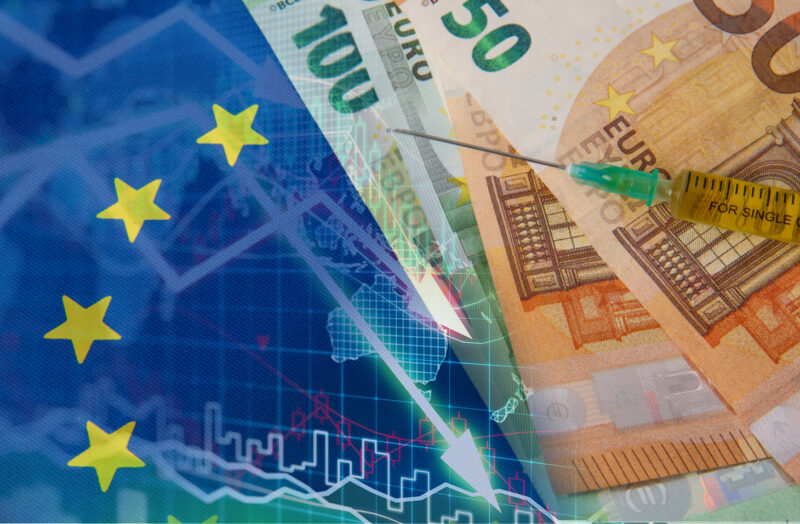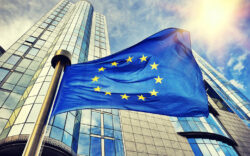Yesterday’s Fortune & Freedom article, The Brexit that time will forget, didn’t win many friends. But it’s not our job to tell you what you want to hear.
Let me try to make the same point with a question…
Imagine Britain in ten years’ time…
Walking down the high street, if there still is one, do you think you could tell whether we’d left the EU or not?
Do you think the impact of Brexit would be noticeable in our day-to-day lives?
Would it be obvious how things are different relative to how our future in the EU would’ve been?
I think the differences will matter a lot. But I don’t think they’ll be very obvious…
Unless we really do make the most of Brexit. Perhaps that’s the more inspiring message. We have everything yet to play for in shaping post-Brexit Britain. And suddenly your vote actually matters because UK government policy is free to go its own way, not the EU’s.
But let’s not daydream about that too much… This is an investing newsletter, after all. It deals with reality.
And the reality is, we’re stuck in a pandemic that is still hitting new records by many measures. The FTSE 100 just had its worst year since 2008, while gold hit record highs and bitcoin has gone ballistic.
So, markets are on the move.
But the question I promised to look into yesterday is this one:
How has our government performed during the pandemic?
Impressively badly on some measures. Impressively well on others. Perhaps that’s a hint of what’s to come post Brexit too?
In a July article which will be remembered for all the wrong reasons, the clever clogs American academic Tyler Cowen explained why the UK topped his list for good government responses to Covid-19. He wrote that “One country has done more than any other to stop the spread of the coronavirus.” And “The U.K.’s Response to Covid-19 Has Been World-Class.”
With the new mutant strain supposedly originating in the South-East, this may no longer be true… Not to mention keeping travel open.
But Tyler really is a clever clogs. And his point in the article was carefully clarified in his blog:
Which country has had the best response to the coronavirus?
I pick the United Kingdom, even though their public health response has been generally poor. Why? Their researchers have discovered the single-best mortality-reducing treatment, namely dexamethasone (the cheap steroid), and the Oxford vaccine is arguably the furthest along. In a world where ideas are global public goods, research matters more than the quality of your testing regime!
This bit of the article and blog post was especially good: “Critics of Brexit like to say that it will leave the U.K. as a small country of minor import. Maybe so. In the meantime, the Brits are on track to save the world.”
The irony is that the vaccine which the UK ended up rolling out first was not exactly British…
The German company BioNTech partnered with America’s Pfizer, created and tested their concoction in Germany and it was funded by the German government, EU and American private investment.
The UK just approved it first. But perhaps that’s the point. The ability of government to get out of the way is all that’s needed. We left the EU to escape its government, not anything else.
Case in point is what happened to Britain’s PPE early in the pandemic. The Financial Times reported at the time:
Contracts signed by the UK with international suppliers for kit to safeguard health workers were “not worth the paper they were written on” after countries imposed export bans in the midst of the coronavirus crisis, a senior NHS official said on Thursday.
Mark Roscrow, director of NHS Wales’s shared services procurement, told MPs that contracts that had been placed for emergency deliveries of personal protective equipment (PPE) in the event of a pandemic were rendered worthless during the Covid-19 outbreak after countries including France and Germany prohibited their export.
Yikes. While the Brits were busy “saving the world”, the Germans and French were hoarding our PPE?
But it wasn’t just the UK that got embargoed on PPE. Italy found itself hit first by the pandemic and abandoned by the Germans and French. The EU failed to persuade them to lift the PPE export measures.
In fact, the EU’s response to Covid-19 was so bad that the EU Commission president had to apologise for it. On 16 April, EU Commission President Ursula von der Leyen apologised to Italy for leaving them in the lurch at the height of the Covid-19 crisis: “it is right that Europe as a whole offers a heartfelt apology,” she said.
The Crossfire KM publication summed up the damage at the time:
Polls, released in mid-March, showed that only 4% of Italians believed the EU was helping their country tackle Coronavirus, while the percentage of those who thought of EU membership as “a disadvantage” skyrocketed from 47% pre-COVID to 67% post-COVID ; at the end of March, the number of Italians who declared to feel European had fallen from 66% to 49% .
Then there was the EU budget. It was supposed to redeem the EU’s earlier pandemic failures. Calling for a new Marshall Plan, Von der Leyen said this:
There is only one instrument we have that is trusted by all Member States, which is already in place and can deliver quickly. It is transparent and it is time tested as an instrument for cohesion, convergence and investment. […] And that instrument is the European budget. […] The European budget will be the mothership of the recovery.
Now I disagree with all of that. But consider what happened next. At a series of meetings, the EU’s members failed to come to an agreement on spending any money. Here’s a quick lowlights reel:
- 27 March, The Irish Times: “EU leaders fail to reach agreement on coronavirus stimulus package”
- 8 April, CNBC: “Euro zone fails to reach a deal on new coronavirus stimulus after 16 hours of talks”
- 10 April, Reuters: “Congratulations, it’s a fudge: EU crisis deal leaves much unresolved”
- 23 April, NPR: “EU Leaders Fail To Agree On Coronavirus Economic Recovery Program”.
Imagine if this had occurred in any of the national governments around the world. A pandemic without a rapid economic response from the government? The economic carnage and political consequences would’ve been extraordinary.
Still, I agree with columnist Ambrose Evans-Pritchard in The Telegraph when he summed it all up with this headline:
Europe’s vaccination fiasco threatens to become the EU’s biggest failure
The politicisation by Brussels of Covid vaccines is turning into an economic and political black swan event – with a huge price to pay
One German professor estimated the EU’s approval delays would cost 15,000 lives.
As a result of all this, the German media claimed the first German to be vaccinated was in the UK. And Germany’s health minister was announced Germany’s most popular politician after he claimed the vaccine shemozzle could undermine citizens’ faith in the EU.
But before you conclude that the UK government is a comparative miracle worker, don’t forget the actual pandemic itself. That’s been a disaster, despite the lockdowns.
Perhaps that’s the new “despite Brexit” we’ve been looking for… “Despite the lockdown”.
More on that tomorrow…

Nick Hubble
Editor, Fortune & Freedom




